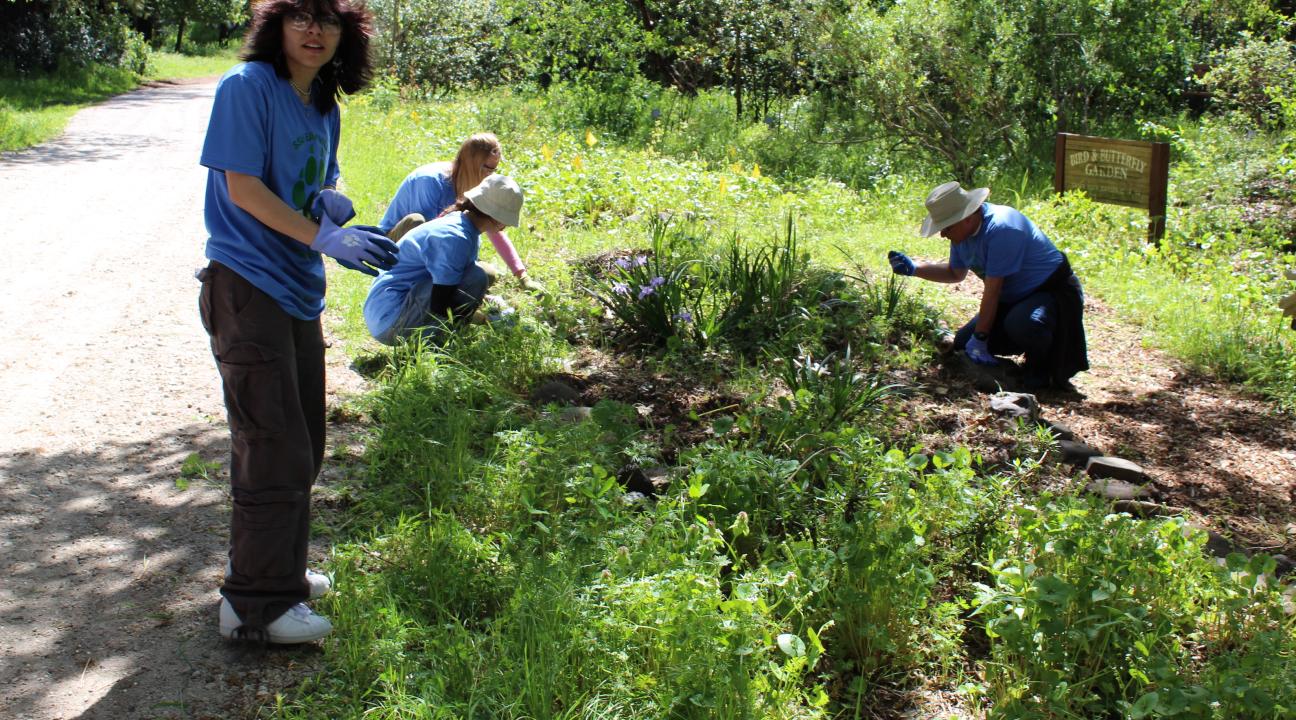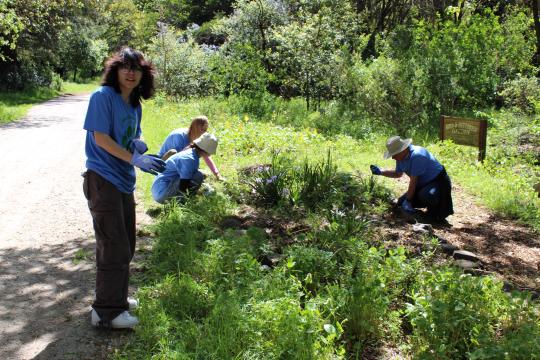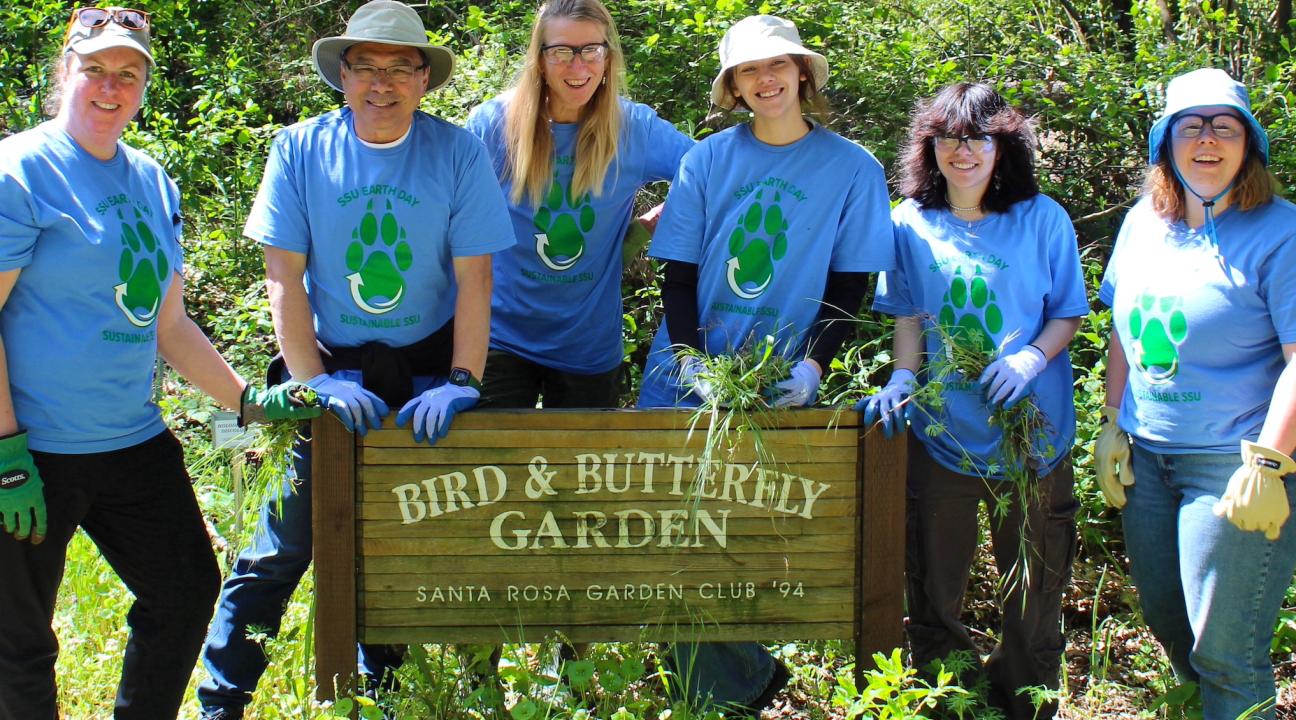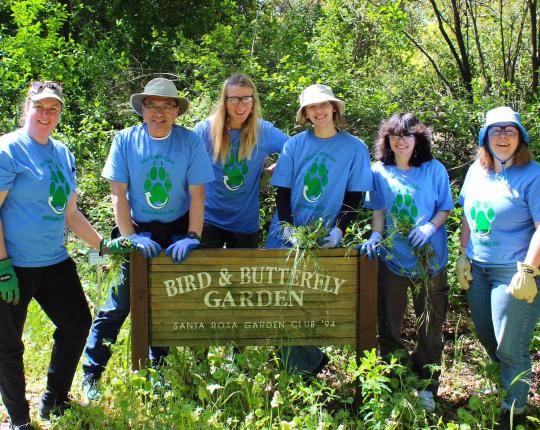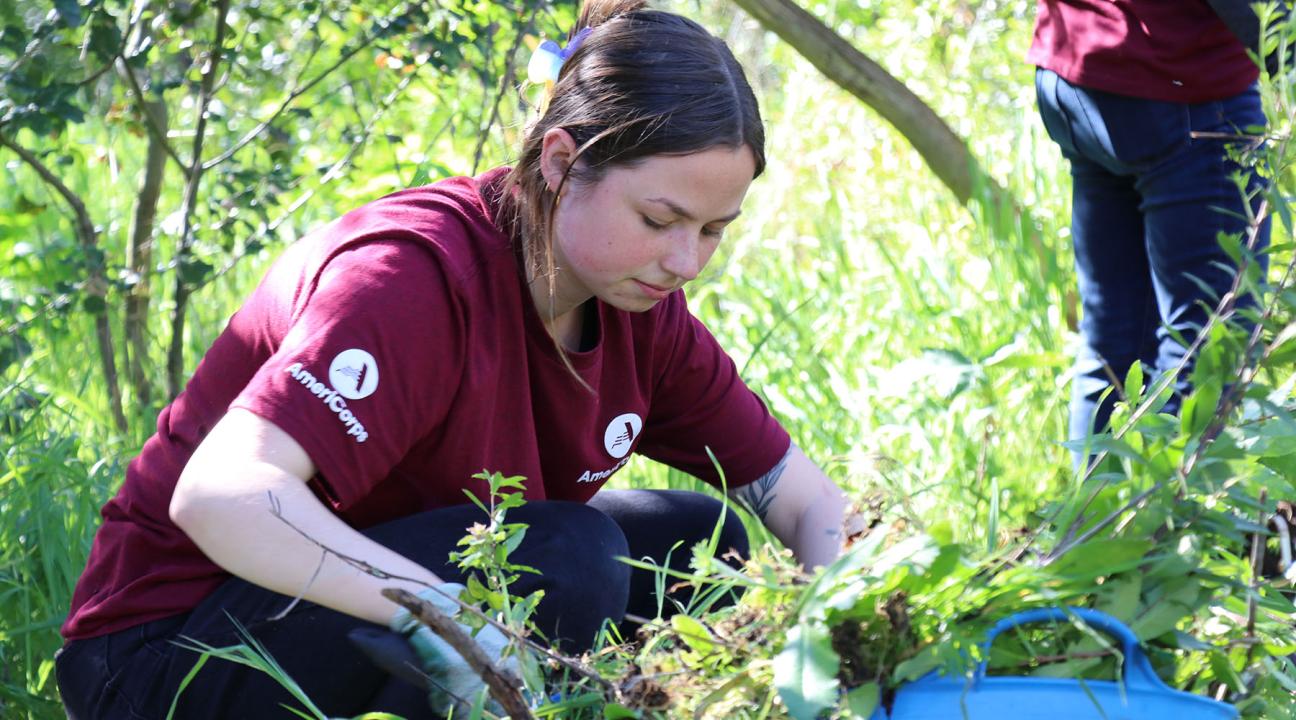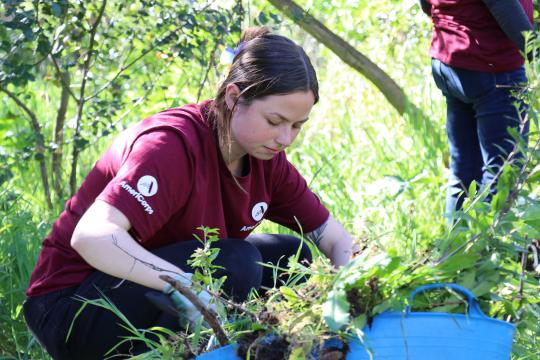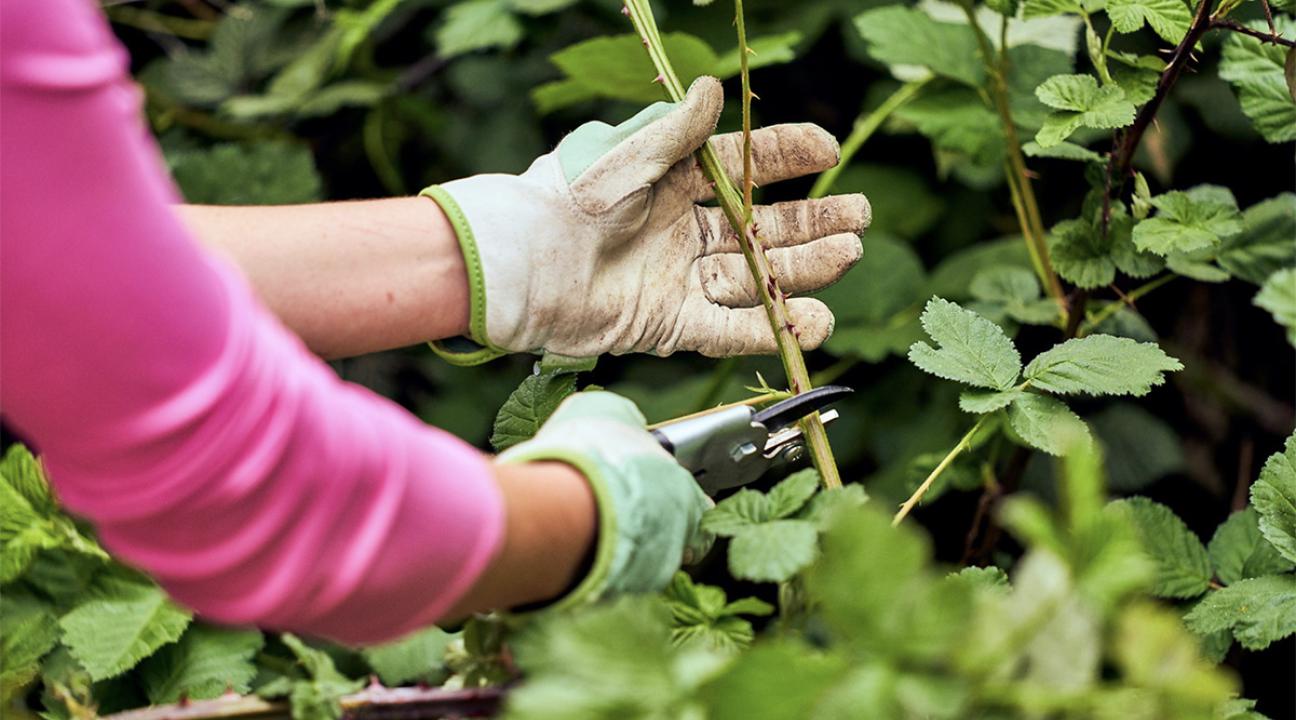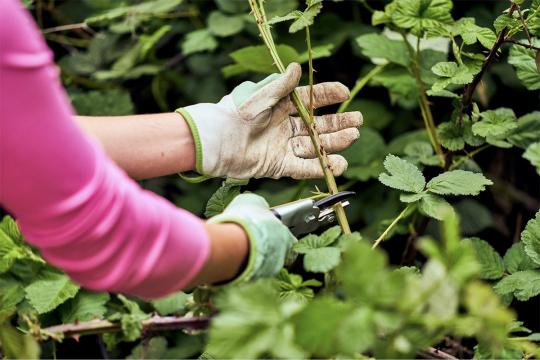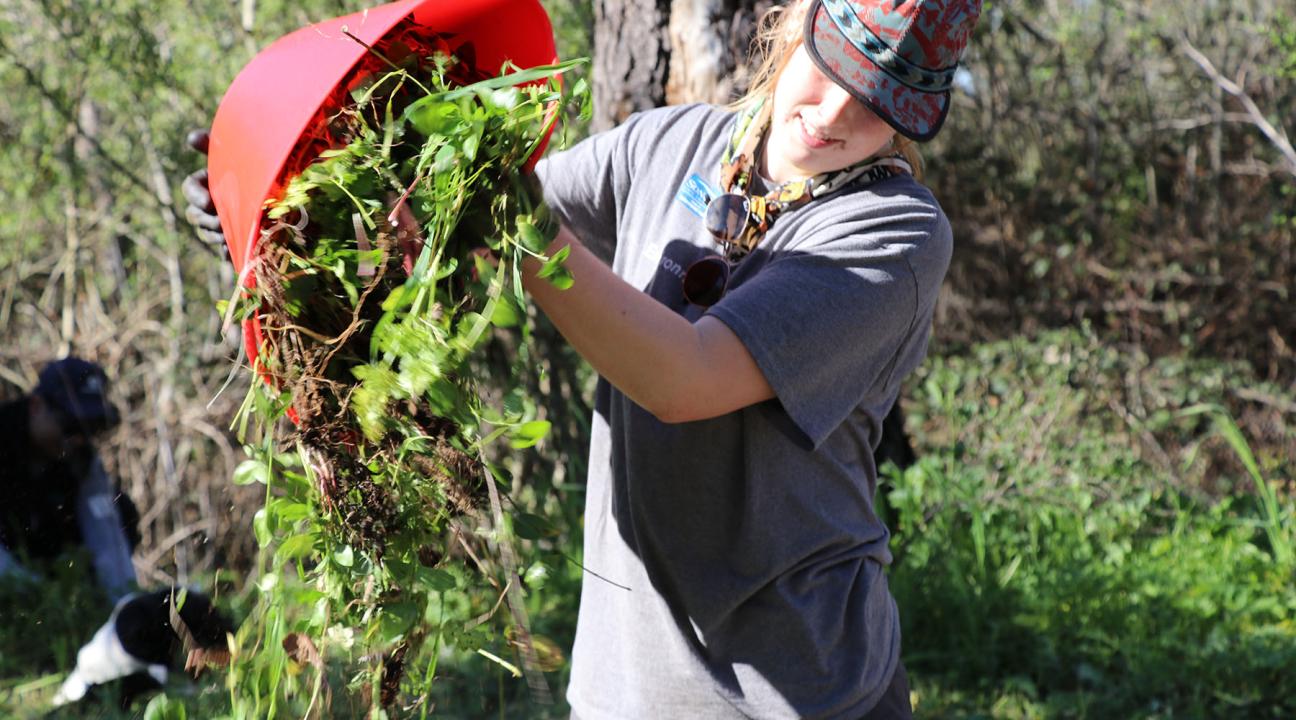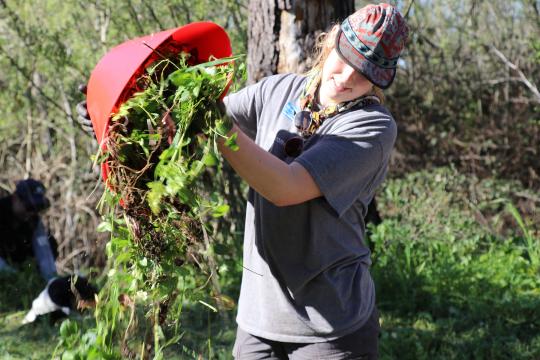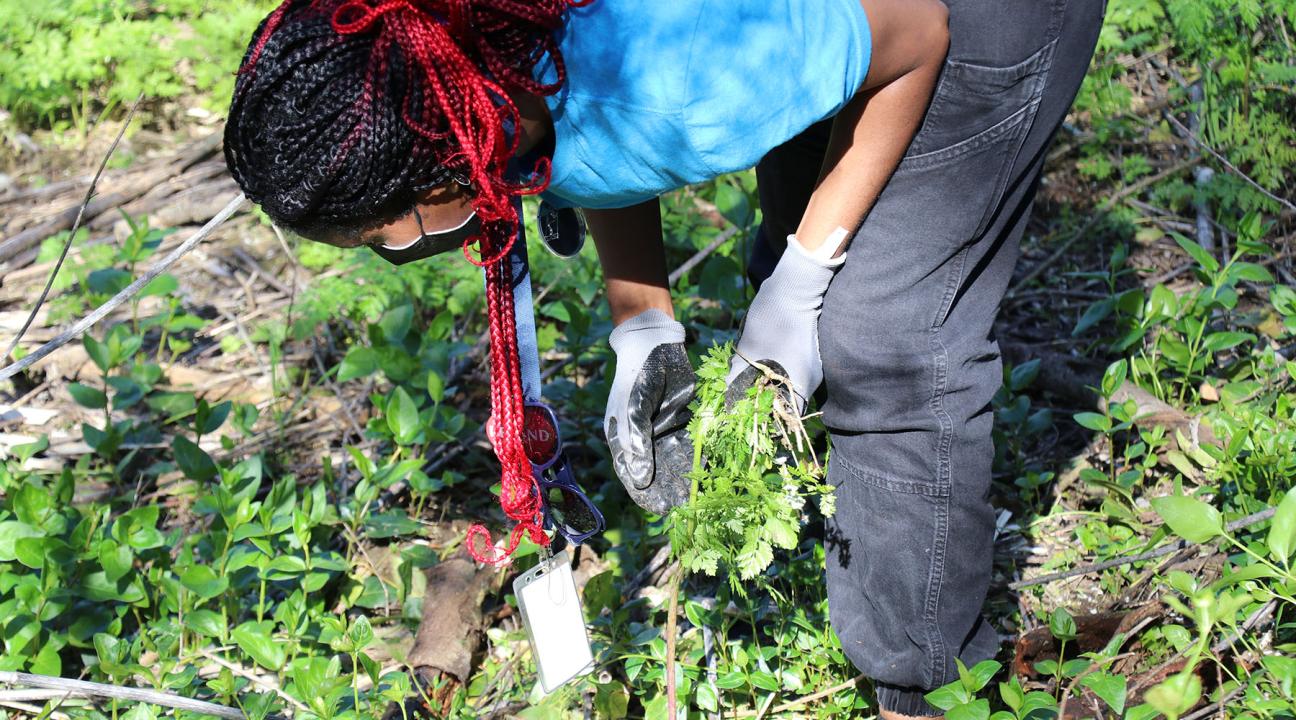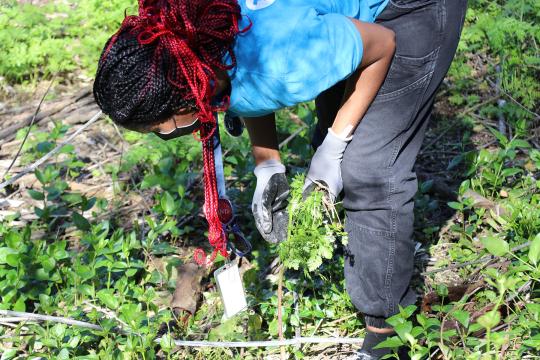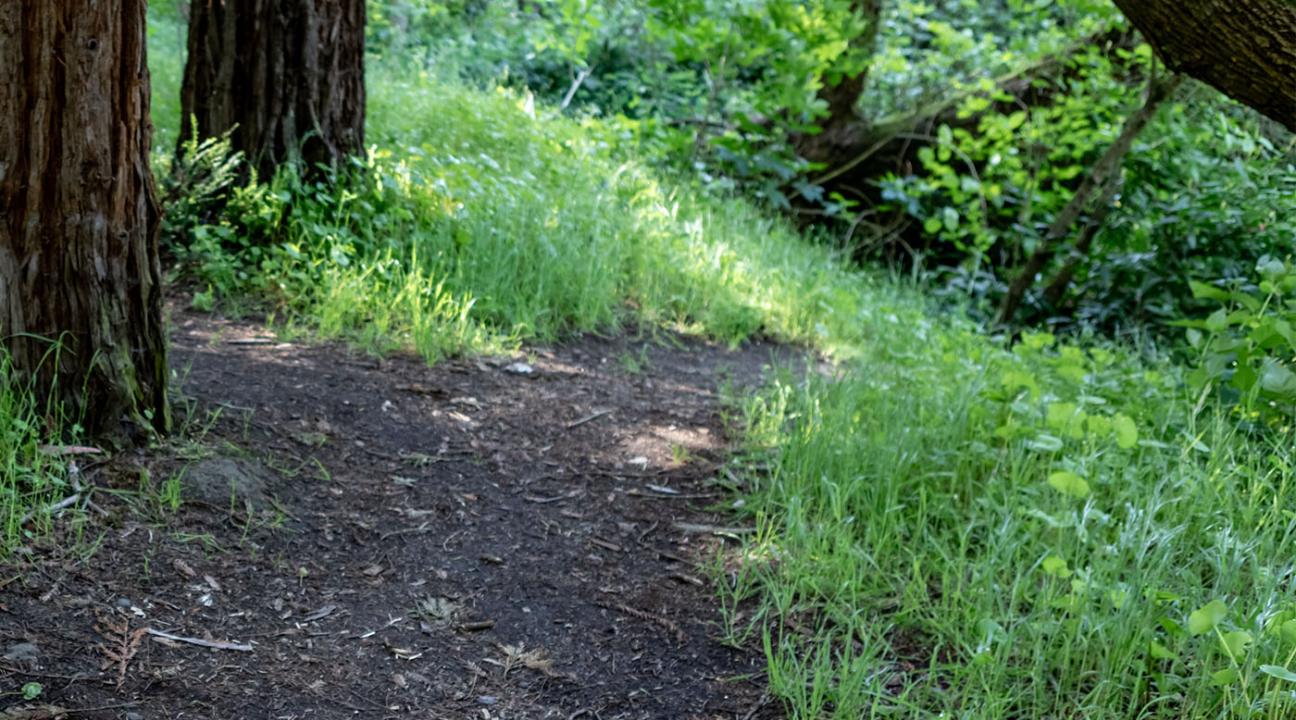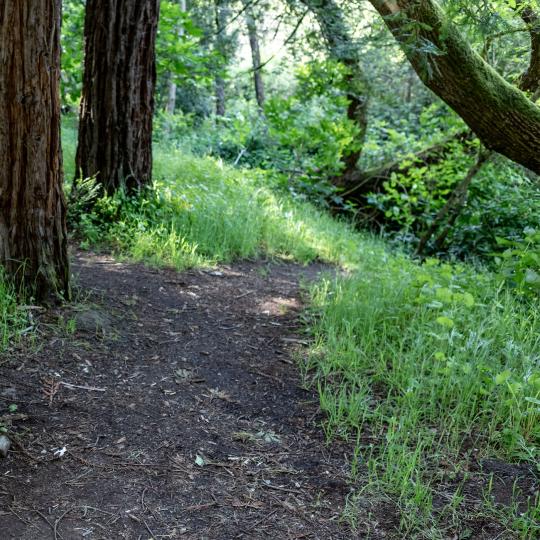SSU’s Campus Nature Corridor: An outdoor learning and research space for all students
A meandering creek. A sun-dappled clearing in a forest. Ripened fruit warmed by the sun. You can find this peaceful getaway right on the SSU campus.
Now this 15-acre area, known as SSU’s Campus Nature Corridor, is poised to become a high-impact classroom, creating opportunities for students from any discipline to work with campus and community leaders on social, economic, and environmental projects.
“The campus corridor is an exceptional untapped academic resource sitting right under our noses,” said Claudia Luke, director of the SSU Center for Environmental Inquiry (CEI). “We have an opportunity to help students apply theoretical knowledge they learn in the classroom to real-world collaborative challenges just a few steps outside.”
Like other campus lands, the corridor is overseen by SSU Facilities. However, since the 1970s, corridor lands have additionally been places for significant academic collaboration with CEI and SSU’s Department of Geography, Environment, and Planning (GEP), resulting in three distinct areas: the Agroecology Garden, Copeland Creek Restoration Project, and Stocking Native Plant Garden.
These locations lie adjacent to each other but have been independently managed as separate initiatives. “Talking to other faculty and staff, we saw real potential to leverage this incredible on-campus resource by collaborating across these programs,” said Luke.
The corridor is envisioned as an exceptional academic resource for all disciplines, one that can meaningfully contribute to SSU’s Academic Plan, SSU’s Climate Action Plan, and the CSU Higher Education Climate Action Report.
“At first glance, challenges in the corridor are the realm of environmental scientists,” said Luke. “But because environmental issues arise from cultural and economic issues, the corridor creates opportunities for all disciplines.”
CEI‘s Education into Action programs – Rising Waters and Fire Up – are examples. While these community collaborations focus on challenges surrounding water and fire, the majority of faculty–student research teams engaged in collaborative projects are from non-science disciplines.
The corridor is not only important for academic excellence, but also for the health and well being of our campus and neighboring communities.
When SSU Psychology Professor Mary Gomes became Faculty Sustainability Chair, she began working with the Sustainable SSU academic working group to explore ways to connect students, faculty, and staff to the health benefits of outdoor spaces on campus (see SSU Nature Connections). And students in Gomes’s ecopsychology class are looking for ways to boost visitation in the corridor.
“The health benefits of natural places – although robustly documented – are poorly known,” said Gomes. “With the SSU Nature Connections, I saw an opportunity to highlight the benefits of such incredible resources on campus. The corridor is a rare gem that SSU can leverage to fulfill its identity as a public liberal arts and sciences institution while improving the health of the campus community.”
In May 2024, Luke and Gomes hosted a workshop for faculty from all disciplines and community leaders from agencies, environmental non-profits, and cities to explore the idea of the Campus Nature Corridor as an environmental incubator.
“Faculty and community attendees were enthusiastic,” said Luke. “They saw the potential for collaboratively working on finding new solutions to challenges surrounding water management, biodiversity & ecosystem function, and community health.”
The next steps for the corridor to develop academic–community partnerships for specific projects and funding opportunities. A workshop was planned for November 22, 2024 in SSU’s Student Center.
To find out more about this developing initiative, contact CEI Director Claudia Luke at [email protected].
Sonoma State University’s Center for Environmental Inquiry empowers university students to work with community members on the environmental challenges of the North Bay. Our mission is to create an engaged and environmentally ready society, one where all people have the skills to find solutions to the challenges facing our earth. SSU Preserves are open to everyone engaged in education or research. Reservations are required.


